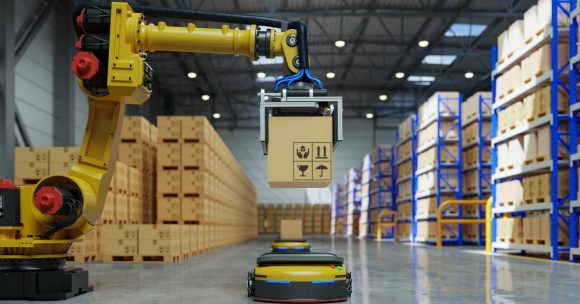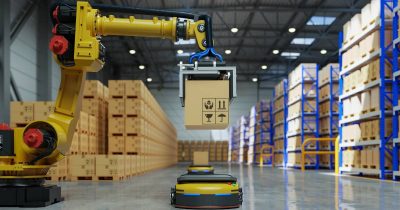Global services company Accenture and leader in robotics Mujin are joining forces for the betterment of logistics.
The companies have established a joint venture called Accenture Alpha Automation, a company focused on the manufacturing and logistics industries. It will service customers in Japan first, then worldwide. The joint ventures ownership is 70% Accenture and 30% Mujin.
Mujin Inc. CEO Issei Takino says the use of the company’s robot automation technology will drive a paradigm shift for the manufacturing and logistics industries. “Our mission is to make industrial robots intelligent and easy to use so they can improve productivity and quality and help create new value in an aging society,” says Takino.
Accenture has the digital solution
Headquartered in Ireland, Accenture helps businesses worldwide build their digital foundations and optimize operations. It serves clients in over 120 countries.
Mujin, a technology robotics company, develops machine intelligence for robot controllers. Launched in 2011, the company has offices in Europe, China, and the US.
Atsushi Egawa leads Accenture in Japan. “By teaming with Mujin, a leader in robotics technology, Accenture will be able to help our clients take advantage of AI and robotics to connect data throughout the manufacturing and logistics value chain, further contributing to the data-driven transformation of Japan’s important manufacturing and logistics industries,” he says.
This month, the company also announced its acquisition of Work & Co., a global digital product company.
Robotics and AI in logistics
The trend of automation is sweeping through the logistics industry. This technology is assisting companies to perform better and help them adapt to a demanding market. Here are some benefits to automation:
- Safety and reliability: Robotics can handle heavy packaging with ease. Robotics systems can also handle toxic chemicals, which allows humans to avoid toxic fumes and exposure to chemicals.
- Inventory management: Automated systems assist companies to prevent backlogs and allows the company to adapt to demand in the market.
- Strong customer satisfaction: Companies can keep customers happy by delivering goods faster.
- Resilient to changes: Automation allows the supply chain to be more agile. This includes times when demand is suddenly high or improves accuracy for prolonged periods.
One company making good strides in the use of robotics is FedEx. The logistics giant partnered with Dexterity to supply artificial intelligent (AI) powered technology to load boxes into trucks and trailers.
In January, FedEx moved another step in its automation quest. The company announced the launch of fdx – a first-of-its-kind data platform. The new initiative will allow customers to be part of the end-to-end journey.
The race is on for tech
The year 2024 looks like the year of technology. Logistics companies around the world are implementing tech innovations to assist their businesses.
On the warehouse front, these facilities are experiencing some crucial benefits to automation – and staying ahead of the game and remaining competitive in the industry. Automation is assisting with aspects such as:
- Stock merging – allowing warehouse users to keep products. Often, warehouse users keep stock separately, but this practice is changing to keep stock together.
- Visibility – More order transparency is the name of the game for 2024. Providing vital information about an order, including from online platforms, will be a “must-have” this year.
- Sustainability – Warehouses are looking to operate sustainably, reducing their environmental impact. This is being done using sustainable materials and environmentally friendly energy sources.
- Restoring and customizing – There is a need for warehouses to be modern. Warehouses will also focus closely on industry-specific needs.
- Data optimization – Moving the warehouse towards operating digitally is crucial to providing speed. This year, warehouses will adapt to modern practices to carry out operations.
About the author
Sharl is a qualified journalist. He has over 10 years’ experience in the media industry, including positions as an editor of a magazine and Business Editor of a daily newspaper. Sharl also has experience in logistics specifically operations, where he worked with global food aid organisations distributing food into Africa. Sharl enjoys writing business stories and human interest pieces.











